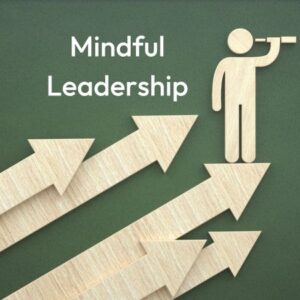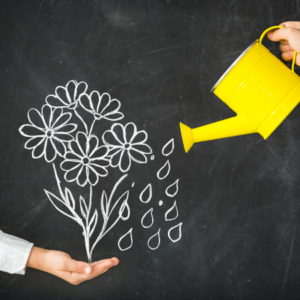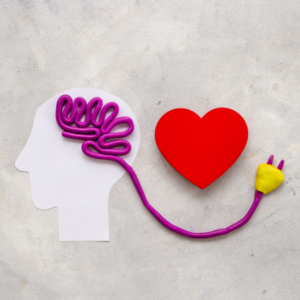Filipinos are known to be witty, fun-loving, humorous, and always smiling. It is common for Filipino citizens to turn a trending social issue into memes to lighten the mood or make the problem a lot easier to take. On TV and in street bars, there are stand-up comedians entertaining people with banter and jokes, and in a family setting, there will always be that one dad or uncle who is a “jokester”. According to anthropologist Dr. Clemente Camposano, Chancellor of UP Visayas, jokes allow people to tackle real problems “in a manner that does not create tension.”
So what do laughter and humor have to do with our well-being?
Positive psychologists are particularly interested in the significance of humor as a character strength and a virtue that is crucial to human flourishing (Peterson & Seligman, 2004). It makes sense that those with a good sense of humor will be in a better position to handle trying circumstances, enjoy more cohesive relationships, find humor in all kinds of experiences, and benefit from more positive mental and physical health. (Martin, 2019).
Many studies have discovered that engaging in a humor exercise is associated with a positive mood, increased life satisfaction and a pleasurable and engaged life, and positive cognitive appraisals (Edwards, 2013, Maiolino & Kuiper, 2016, Ruch, Proyer, & Weber, 2010, Samson & Antonelli, 2013). Adaptive humor is linked with increased stable positive mood and decreased stable negative mood (Cann & Collette, 2014). On the other hand, detrimental humor (such as sarcasm and self-deprecating humor) is thought to have possible drawbacks like reduced relationship quality and low self-esteem (Martin, 2019). Existing research suggests that humor may have a variety of health benefits for patients, including improved interpersonal relationships, higher pleasant emotions, increased immunity, reduced pain, and happy emotions (Gelkopf, 2011).
According to Dr. Maria Rhodora Ancheta of the Department of English and Comparative Literature, College of Arts and Letters, University of the Philippines Diliman, “national humor” unites Filipinos and is a potent showcase of “Filipino-ness.” At times of crisis, it serves as a “social glue” that unites all Filipinos who have gone through the same experiences. This shared laughter is what builds the essential solidarity that enables everyone to understand that many people can connect to their experiences. Despite our daily struggles, traumatic experiences, and embarrassing situations, laughing and humor provide us with comfort and positivity and pave the way for how we socialize with a sense of humor.
As it lessens the weight of difficult emotions, humor fits under the category of emotion-focused coping. Pinoys utilize comedy as a coping mechanism. By focusing on the funny parts of every situation they encounter instead of the issues at hand, they avoid life’s toughest headaches. Filipinos are able to boost one another’s spirits in the midst of hardship, making stressful circumstances more cheerful and less serious.
Humor is associated with innovation and productivity. Pinoys use their creativity to make others laugh. Filipinos are also quite talented at adapting and localizing foreign memes. They establish a distinctively Pinoy meme culture by combining elements of Filipino culture into memes, which distinguishes their sense of humor from those of other ethnic groups. Filipinos enjoy a bubble of happiness that is resonated with their common norms and shared experiences in diverse situations.
Filipinos use humor to resolve disputes without raising stress. Yet, humor may also be a technique for Filipinos to communicate hatred without raising tension or to channel their unfavorable sentiments toward others without immediately leading to heated confrontations. Laughter can sometimes disguise and deter Filipinos from taking critical things seriously. We utilize comedy to communicate our identities as well as our ideas and perspectives, some of which may offend certain individuals. Filipinos have discovered a means to spread relevant ideals and viewpoints based on current national realities by using comedy.
Then, what’s the difference between humor and laughter? Humor is an attitude. The ability to view the world as something other than awful (Ellis & Adams, 1994). It’s the ability to be childlike, not take things too seriously, and wear a positive worldview lens. Laughter is an expression of the outcome of humor.
We are left with the questions of how genuine laughter can be the best medicine and how the power of humor heals.
Here are some benefits of laughing:
Social Benefits
There is something sacred about humor. If you can laugh at yourself, then you can forgive yourself. And if you can forgive yourself, you can forgive others.
—Bianca L. Rodriguez, LMFT
Laughter can improve relationships and your understanding of both yourself and others.
According to Scott, people laugh in order to get closer to each other. “Laughter is the social glue that makes and strengthens our links with other people.”
Remember the last time you found someone attractive because of their smile? It helps defuse conflict and adds positivity to conversations. Promotes and enhances teamwork and group bonding.
Mental Health Benefits
Laughing can help to reduce stress, as well as tension and anxiety. In the long run, it can boost resilience, increase joy and zest for life, and elevate mood and memory. Laughter alters your perception, enabling you to perceive situations in a more practical and non-threatening way. A light-hearted viewpoint fosters psychological distance, which can assist you in resolving conflict and preventing feelings of overwhelm. You can unwind and recharge with laughter. It lowers stress and boosts energy, allowing you to maintain focus and accomplish more.
Physical Health Benefits
Humor brings comfort and eases physical pain.
We know that laughter has been shown in studies to improve your pain threshold, likely due to an endorphin-mediated opiate effect. What is interesting is that this appears to be independent of your mood, meaning that it can have a positive effect even when you are down.
— Robert Bonakdar MD, FAAFP, FACN
Laughter can prevent heart disease and improve heart health. It improves sleep, boosts immunity, and lowers stress hormones. Laughter stimulates many organs, increases the amount of oxygen-rich air you breathe in, stimulates your heart, lungs, and muscles, and increases the amount of endorphins your brain releases. Additionally, laughter can also increase blood circulation and help with muscle relaxation, which can help alleviate some of the physical symptoms of stress.
According to Dr. Lee Birk, who led a study of the interaction between the brain, behavior, and the immune system, “the anticipation of a happy laughter experience lowers levels of three stress hormones: cortisol, epinephrine (also known as adrenaline), and dopac.”
Tips on how to bring more laughter into our lives:
Start with a smile
The half-smile is a relaxation technique that helps you feel calmer and accept the reality of stressful situations. Half-smiling is achieved by relaxing your face (from your brow to your jaw and chin) and raising your lips into a tiny half-smile. The act of smiling, whether real or fake, causes your body to release endorphins, which are feel-good chemicals. Furthermore, a fake smile tends to lead to a genuine one, making laughter easier to come by and, as a result, relieving stress more easily.
Recruit funny friends
Spend more time around funny people. Social support is an essential component of stress management. Find a friend or group of friends with whom you can share your frustrations and challenges while also laughing about them. Even if your friends are not present, you can lift your spirits by thinking about the retelling that will take place later.
Find funny entertainment
Watch or listen to stand-up comedy and or read funny books.
Don’t be afraid to embrace your inner child
Adults frequently believe that they must always act in an “age-appropriate” manner. However, if being silly and playful made you happy when you were 12, it is likely that it will make you happy now. Don’t deny yourself happiness because you feel obligated to act a certain way.
Even in the face of difficulties and hardships, Filipinos are known for having the highest levels of happiness. The Philippines ranked as the third-happiest nation in the world in Gallup’s 41st Annual Global End of Year Survey. It is noteworthy that Filipinos use their “national humor” in various contexts and for various purposes. Being able to see the situation through the optimistic lens of humor rekindles Filipinos’ hope and sense of community in overcoming whatever life throws at them. On the bright side, always finding a reason to smile in the middle of a storm adds up to the genuineness of Filipino humor.
References:
- Ancheta, Maria Rhodora G. (2011) Halakhak: Defining the “National” in the Humor of Philippine Popular Culture. Thammasat Review, 14 (1). pp. 35-60. ISSN 0859-5747
- Samuels, Roanne (2019) Filipinos and Their Contagious Laughter. The Power of Humor to Heal.https://kalamansijuice.com/filipinos-and-their-contagious-laughter-the-power-of-humor-to-heal/
- Field, Barbara (2021) The Health Benefits of Humor and Laughter. Reviewed by David Susman, PhD. https://www.verywellmind.com/health-benefits-of-humor-and-laughter-5101137
- Robinson, Lawrence; Smith, Melinda; M.A. and Segal, Jeanne Ph.D. (2023) Laughter is the Best Medicine. https://www.helpguide.org/articles/mental-health/laughter-is-the-best-medicine.htm
- Yim, J. (2016). Therapeutic Benefits of Laughter in Mental Health: A Theoretical Review. The Tohoku Journal of Experimental Medicine, 239(3), 243–249.
- Speer, M. E., & Delgado, M. R. (2017). Reminiscing about positive memories buffers acute stress responses. Nature Human Behaviour, 1(5), 0093.
- Romundstad, S., Svebak, S., Holen, A., & Holmen, J. (2016). A 15-Year Follow-Up Study of Sense of Humor and Causes of Mortality: The Nord-Trøndelag Health Study. Psychosomatic Medicine, 78(3), 345–353.
- Manninen, S., Tuominen, L., Dunbar, R. I., Karjalainen, T., Hirvonen, J., Arponen, E., Hari, R., Jääskeläinen, I. P., Sams, M., & Nummenmaa, L. (2017). Social Laughter Triggers Endogenous Opioid Release in Humans. The Journal of Neuroscience, 37(25), 6125–6131.
- Buchowski, M. S., Majchrzak, K. M., Blomquist, K., Chen, K. Y., Byrne, D. W., & Bachorowski, J.-A. (2007). Energy expenditure of genuine laughter. International Journal of Obesity, 31(1), 131–137.
- Sangco, Andrea. When In Manila Bob May 11, 2006. https://www.wheninmanila.com/draft-here-are-4-reasons-why-filipino-humor-is-noteworthy/
- Robinson, L., Smith, M., & Segal, J. (2021). Laughter is the Best Medicine. Retrieved from the Help Guide website: https://www.helpguide.org/articles/mental-health/laughter-is-the-best-medicine.htm [Last updated: July 2021]
- Mayo Clinic. Stress Management. Retrieved from the Mayo Clinic website: https://www.mayoclinic.org/healthy-lifestyle/stress-management/in-depth/stress- relief/art-20044456 [Last updated: July 29, 2021]
- Lonczak , Heather S., Smith, William. Humor in Psychology: Coping and Laughing your woes away. Retrieved from the Positive Psychology website: https://positivepsychology.com/humor-psychology/#strength [Last updated: July 08, 2020]
- Scott, Elizabeth; Chung, Adah. How to Use Humor to Cope with Stress. Retrieved from the https://www.verywellmind.com/maintain-a-sense-of-humor-3144888 website [Last updated: June 12, 2022]
- Lapena, Carmela. Use Pinoy ‘national humor’ to diffuse conflict, survive tough times. Retrieved the from https://www.gmanetwork.com/news/lifestyle/content/284308/use-pinoy-national-humor-to-diffuse-conflict-survive-tough-times/story/ website. [Last updated: November 29, 2012]




